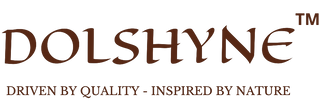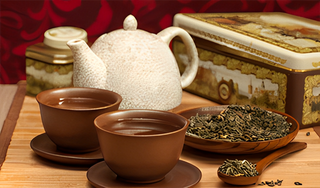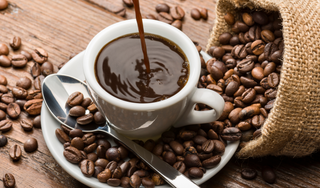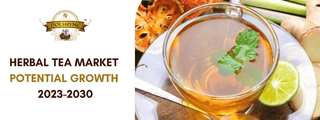Herbal tea has become increasingly popular in recent years due to its numerous health benefits and natural ingredients. As more people become health-conscious, the demand for herbal tea is expected to grow significantly in the coming years. According to a report by Market Research Future, the global herbal tea market is expected to grow at a CAGR of 5.05% during the forecast period 2023-2030. In this blog, we will analyze the industry, size, and share of the herbal tea market, with a focus on herbal tea online.
Industry Analysis
The herbal tea market is highly fragmented, with a large number of small and large players operating in the market. The market is divided into two segments: packaged herbal tea and loose herbal tea. Packaged herbal tea is the most popular form of herbal tea and is widely available in supermarkets, health food stores, and online. Loose herbal tea is less popular but is gaining popularity due to its natural ingredients and unique flavors.
The market is also segmented by type of herbal tea, including chamomile, peppermint, ginger, and others. Chamomile is the most popular type of herbal tea, followed by peppermint and ginger. Other types of herbal tea, such as hibiscus and rooibos, are also gaining popularity due to their health benefits and unique flavors.
The herbal tea market is driven by several factors, including increasing health consciousness, growing demand for natural and organic products, and the rise of e-commerce. Consumers are becoming more aware of the health benefits of herbal tea, such as reducing stress and anxiety, improving digestion, and boosting immunity. As a result, they are increasingly turning to herbal tea as a healthier alternative to traditional tea and coffee.
Size and Share
The global herbal tea market was valued at $4.5 billion in 2020 and is expected to reach $6.8 billion by 2025, growing at a CAGR of 8.5% during the forecast period. The packaged herbal tea segment is expected to hold the largest share of the market, followed by the loose herbal tea segment.
North America is the largest market for herbal tea, followed by Europe and Asia Pacific. The Asia Pacific region is expected to grow at the fastest rate due to the growing demand for natural and organic products and the increasing popularity of traditional herbal remedies.
Online sales of herbal tea are also growing rapidly, with more consumers turning to e-commerce for their shopping needs. Online sales of herbal tea are expected to grow at a CAGR of 9.5% during the forecast period, driven by the convenience and accessibility of online shopping.
Herbal Tea Online
The rise of e-commerce has significantly impacted the herbal tea market, with more consumers turning to online shopping for their herbal tea needs. Online sales of herbal tea are expected to reach $1.2 billion by 2025, growing at a CAGR of 9.5% during the forecast period.
One of the main advantages of buying herbal tea online is the convenience and accessibility it offers. Consumers can browse a wide selection of herbal tea from the comfort of their own homes and have it delivered directly to their doorstep. Online shopping also allows consumers to compare prices and read reviews before making a purchase, making it easier to find the best deals and highest quality products.
Another advantage of buying herbal tea online is the wider selection of products available. Online retailers offer a wider range of herbal tea products than traditional brick-and-mortar stores, including unique blends and rare varieties. This allows consumers to try new and interesting flavors that may not be available in their local stores.
In addition, online shopping offers greater transparency and information about the products being sold. Online retailers provide detailed information about the ingredients and health benefits of their herbal tea products, allowing consumers to make informed decisions about their purchases.
However, there are also some challenges associated with buying herbal tea online. One of the main challenges is the risk of buying counterfeit or low-quality products. Consumers need to be careful when buying herbal tea online and only purchase from reputable retailers to ensure they are getting high-quality, authentic products.
Another challenge is the lack of sensory experience when buying herbal tea online. Unlike traditional stores, consumers cannot smell or taste the tea before making a purchase, which may make it difficult to choose the right product. However, many online retailers offer sample packs or small quantities of tea to allow consumers to try them before they buy.
Conclusion
The herbal tea market is expected to experience significant growth in the coming years, driven by increasing health consciousness, growing demand for natural and organic products, and the rise of e-commerce. Online sales of herbal tea are expected to grow at a faster rate than traditional sales, driven by the convenience and accessibility of online shopping.
Consumers need to be careful when buying herbal tea online and only purchase from reputable retailers to ensure they are getting high-quality, authentic products. With the right precautions, buying herbal tea online can be a convenient and enjoyable experience that allows consumers to try new and interesting flavors and enjoy the health benefits of herbal tea.
